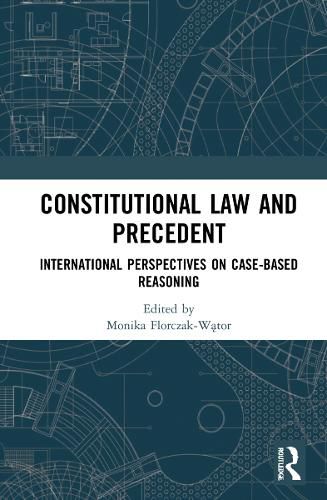Readings Newsletter
Become a Readings Member to make your shopping experience even easier.
Sign in or sign up for free!
You’re not far away from qualifying for FREE standard shipping within Australia
You’ve qualified for FREE standard shipping within Australia
The cart is loading…






This collection examines case-based reasoning in constitutional adjudication; that is, how courts decide on constitutional cases by referring to their own prior case law and the case law of other national, foreign, and international courts.
Argumentation based on judicial authority is now fundamental to the resolution of constitutional disputes. At the same time, it is the most common form of reasoning used by courts. This volume shows not only the strengths and weaknesses of such argumentation, but also its serious methodological shortcomings. The book is comparative in nature, with individual chapters examining similar problems that different courts have resolved in different ways. The research covers three types of courts; namely the civil law constitutional courts of Germany, Italy, Poland, Lithuania, and Hungary; the common law supreme courts of the United States, Canada, and Australia; and the European international courts represented by the European Court of Human Rights and the Court of Justice of the European Union. The authors are distinguished scholars from various countries who specialise in constitutional justice issues.
This book will be of interest to legal theorists and practitioners, and will be especially insightful for constitutional court judges.
The Open Access version of this book, available at www.taylorfrancis.com, has been made available under a Creative Commons Attribution-Non Commercial-No Derivatives 4.0 license.
$9.00 standard shipping within Australia
FREE standard shipping within Australia for orders over $100.00
Express & International shipping calculated at checkout
This collection examines case-based reasoning in constitutional adjudication; that is, how courts decide on constitutional cases by referring to their own prior case law and the case law of other national, foreign, and international courts.
Argumentation based on judicial authority is now fundamental to the resolution of constitutional disputes. At the same time, it is the most common form of reasoning used by courts. This volume shows not only the strengths and weaknesses of such argumentation, but also its serious methodological shortcomings. The book is comparative in nature, with individual chapters examining similar problems that different courts have resolved in different ways. The research covers three types of courts; namely the civil law constitutional courts of Germany, Italy, Poland, Lithuania, and Hungary; the common law supreme courts of the United States, Canada, and Australia; and the European international courts represented by the European Court of Human Rights and the Court of Justice of the European Union. The authors are distinguished scholars from various countries who specialise in constitutional justice issues.
This book will be of interest to legal theorists and practitioners, and will be especially insightful for constitutional court judges.
The Open Access version of this book, available at www.taylorfrancis.com, has been made available under a Creative Commons Attribution-Non Commercial-No Derivatives 4.0 license.